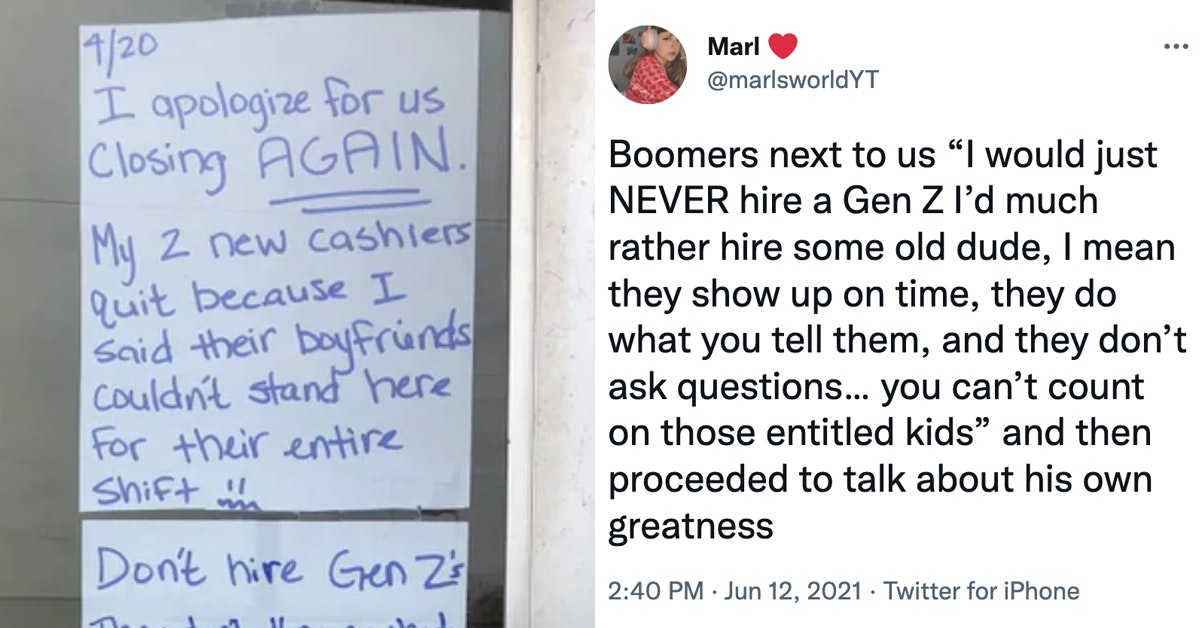As jobs continue to demand too much of workers and pay too little without benefits such as time off or the promise of being able to not work someday when we’re old, attitudes around work have changed especially among younger generations.
Interestingly, the more a generation has seen work only as something meant to exploit them for the bank accounts of CEOs and told they shouldn’t expect decent compensation, the more this seems to be true.
Yet people of older generations still seem to have trouble with the idea that younger folks, especially Generation Z, no longer views work as a virtue in and of itself and are beginning to demand all the things that Boomers got for their labor.
Well, not all of them — nobody has pensions anymore or an expectation that one income source should take care of an entire family. But yes, they will demand to be treated with the most basic of decency and they’re not giving out respect for free.
Even as this youngest named generation has continued to prove themselves to be deeply creative, resourceful, and with an incredible drive given the right motivation, the olds keep piling the same old demands upon them.
You’ll still see social media posts or even physical signs claiming that they don’t know how to work, or that they use frightening new slang, or want to express who they are in an office rather than becoming a dead drone.
This, of course, is largely the fault of those who raised them, so the following people who wrote tweets or comments or whole articles dissing them might want to consider looking for the source of the problem in the mirror. Or they could just stop repeating the mistakes of every passing generation and let the youth be who they want to be.
1.
2. “Proud of Gen Z”


